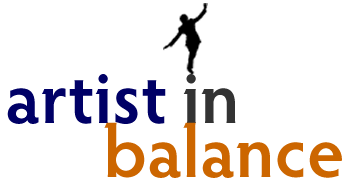Frames of Attention
We all want to be able to concentrate better. In order to do so, we tend to narrow our attention to include only a portion of our instrument or our bodies. Sometimes we may fix our eyes on the musical score or over focus on what we want to express. This may feel like better concentration, but it can lead to more tension than we want. It can limit movement as well as our ability to observe and steer our music making.
We can also be narrowing our attention field in order to protect ourselves in a performance setting. We feel we need to hang on to our place and shield ourselves from “distractions.” This can work against us, setting the stage for feelings of insecurity on stage, and can also affect our coordination.
By broadening our experience of playing or singing we can give ourselves a chance to access more parts of our brain while playing a piece. The more you exercise your brain while learning a piece, the more parts of your brain will be available when you go on stage, making the performance more secure.
Imagine that you want to go somewhere new on your bike.
You take a look at the map of the city to find the best route. (This is your score or the imagine phrase in your mind).
You imagine yourself going the direction indicated on the map, reminding yourself of landmarks that you remember from other trips. (This is your internal GPS, which you also use to navigate music.)
You get on your bike and balance on the saddle, head up, to kick off. (This is your balance mechanism that helps keep you upright).
You push with your feet on the pedals to go forward and your hands on the handlebars ensure that you steer right. (This is equivalent to the place where your body meets the instrument to create sound and articulation.)
You feel your legs moving in relation to each other as you warm up, and your arms steering in tandem, your head and neck coordinates it all. (This is your body sense in relation to itself, your kinesthetic sense, informing your proprioception.)
As you go, you look out at the objects that you pass to find your way. (This is your directional sense.)
All of these actions require multiple senses, all sending messages to the brain, which coordinates the information to create superlative action.
Here are exercises to wake up your senses and train your brain to play or sing with a widened field of attention. You draw your attention to focus on one frame at a time. In the end, you can learn to be aware of all of them at once, and choose where to throw the light of your attention at any given point.
You will practice linking your playing to awareness of:
How your body moves,
The room you play in visually and aurally,
How the instrument as a whole reacts to your playing,
What the instrument requires of you at a basic level.
This will create a web of experience between the music and your mind and body. A varied network in the brain can give a sense of security. Performance will not be limited to a narrow set of coordinates.
It helps to remember to be calm when beginning to explore any of these Frames of Attention. You do not have to “do” anything, but just draw your attention to a skill that your brain already has, and couple it with the phrase you have chosen to practice. When you first broaden your attention field to include new information, you may feel that you loose your accustomed control and concentrated feeling. However, if you continue, your brain and body will adjust, and the improvements in your performance will delight you and spur you on to try more.
